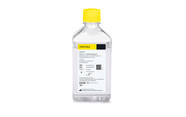Affliction Prediction
Could drug development be guided by a new algorithm that predicts the side effects of potential medicines?

Side effects are inherently unpredictable, often first detected in clinical trials or even by patients after approval. What if drug developers could predict side effects before the drug goes to trial? Researchers at the University of Texas San Antonio have developed an ensemble-based classification algorithm to predict side effects associated with different drugs – and so far it has outperformed previous methods and standard classifiers (based on evaluation results of 1385 side effects for 888 FDA-approved drugs). The team have also applied their method to a number of uncharacterized drug molecules in the DrugBank database to predict their side effects, which have subsequently been validated using literature mining.
The software works by assessing the chemical structure of a drug molecule and then determining whether there are any key sub-structures that are known to cause side effects in other drugs. “Some previous studies used ordinary canonical correlation analysis (OCCA) and sparse canonical correlation analysis (SCCA) to predict side effects,” says Jamiul Jahid one of the authors on the research paper (1). “We compared our results thoroughly with the SSCA method in our manuscript and found that our method significantly outperformed SCCA.”
“One unique feature of our new approach is that it identifies hard to predict rare side effects which can be easily ignored by other approaches. Our model uses chemical sub-structure to identify a small subset of similar drugs to build prediction models for specific drugs, which makes it more robust for those hard-to-predict, rare side effect cases,” says Jianhua Ruan, group leader of the project.
The model developed by Ruan and his team uses a technique called “ensemble classification”. The researchers identified a set of similar drugs for each drug based on their chemical substructures and then constructed a number of base classifiers – these can be any machine learning classifiers, such as a decision tree, support vector machine or a random forest.
“Our method could also be used to identify chemical sub-structures related to different side effects, which means that pharma companies may be able to investigate the underlying mechanism that causes the side effect. This potential could make predictive models like ours crucial in guiding the development of new drugs,” says Ruan.
- M.J.Jahid and J. Ruan, “Structure-based prediction of drug side effects using a novel classification algorithm,” Int. J. Comput. Biol. Drug Des., 9, 1/2, 87 (2016).

Over the course of my Biomedical Sciences degree it dawned on me that my goal of becoming a scientist didn’t quite mesh with my lack of affinity for lab work. Thinking on my decision to pursue biology rather than English at age 15 – despite an aptitude for the latter – I realized that science writing was a way to combine what I loved with what I was good at.
From there I set out to gather as much freelancing experience as I could, spending 2 years developing scientific content for International Innovation, before completing an MSc in Science Communication. After gaining invaluable experience in supporting the communications efforts of CERN and IN-PART, I joined Texere – where I am focused on producing consistently engaging, cutting-edge and innovative content for our specialist audiences around the world.


















